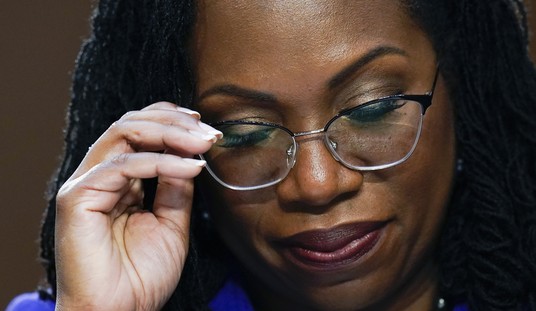GracePointe Church, a self-described “progressive” church that rejected the “evangelical” label, is selling its property in Franklin, Tenn., and moving to nearby Nashville. The church has been hemorrhaging members and funds since pastor Stan Mitchell announced an “affirming” stance on homosexuality and same-sex marriage in January 2015.
“Full privileges are extended now to you [openly homosexual members] with the same expectations of faithfulness, sobriety, holiness, wholeness, fidelity, godliness, skill, and willingness,” Mitchell declared. “Full membership means being able to serve in leadership and give all of your gifts and to receive all the sacraments; not only communion and baptism, but child dedication and marriage.”
With this statement, GracePointe became one of the few “evangelical megachurches” to embrace homosexuality, TIME magazine’s Elizabeth Dias reported in a lengthy profile at the time. Even then, the telltale signs of collapse had emerged.
“January giving usually is about $100,000 — so far this month the church has brought in an estimated $52,000,” Dias reported. The decision to embrace homosexuality came after a three-year “listening” process that began in 2012, when GracePointe member and country music star Carrie Underwood endorsed same-sex marriage. “When GracePointe began the listening process in 2012, Sunday attendance averaged 800-1000. The Sunday he preached the inclusion sermon, attendance was 673, and two weeks later, it was down to 482,” Dias noted.
“It’s a gut punch,” Mitchell told TIME. “I know a year from now, I’m going to feel a whole lot better, but right now it is just hard.”
More than two years later, that gut punch has turned into a roundhouse kick.
In June, the Franklin Patch reported that the church’s 22.- acre property was listed for sale, and that the church would be leaving Franklin and moving across the county line to Nashville. In the two years since the inclusion decision, GracePointe’s membership has been cut in half, even though new members have been coming in from Davidson County.
The congregation went through a radical shift, according to Mitchell. The pastor estimated that in January 2015 90 percent of the members were from Williamson County, a very conservative county Donald Trump won with 63 percent of the vote last November. In June 2017, 50 percent of GracePointe members came from Nashville, one of the few liberal bastions in deep-red Tennessee.
As Jeffrey Walton pointed out over at Juicy Ecumenism, GracePointe had between 700 and 800 weekly attendees at its height, far short of a megachurch, which is typically defined as a congregation with worship attendance greater than 2,000 people.
GracePointe hasn’t just moved out of its old location, according to Walton. The congregation moved to share space with Unity Nashville in its building, as reported by the Tennessee Star. Unity Nashville may describe itself as “a positive, practical, progressive approach to Christianity based on the teachings of Jesus and the power of prayer,” but it also has embraced the “interfaith” label — “unapologetically.” In fact, its Facebook page explains, “Unity honors the universal truths in all religions and respects each individual’s right to choose a spiritual path.”
At that point, what is the purpose of retaining the “Christian” label? Jesus said, “I am the way, the truth, and the life. No one comes to the Father [God] except through me” (John 14:6).
For its part, GracePointe offers t-shirts for sale, but they don’t say anything about Jesus. Rather, they display “Love is a human right,” without so much as a twisted scripture reference to support the statement. This “progressive Christian community” may still read scripture in weekly services (on Saturdays at 5:15 p.m.), but the t-shirts and the partnership with Unity Nashville suggest a lessening focus on the person and teachings of Jesus Christ.
After all, Jesus — the man Christians believe is also fully God and whose words “will never pass away” even though “heaven and earth will pass away” (Matthew 24:35) — quoted Genesis in saying marriage is between one man and one woman. When St. Paul wrote in Romans that homosexuality was a twisting of natural human desire, he wasn’t speaking in metaphor (Romans 1:26-32).
To be clear, both Jesus and Paul called everyone to repentance, and condemned heterosexual lust and adultery just as much as homosexual activity. Christians are not to condemn or hate LGBT people — Jesus was adamant that the second great commandment is for everyone to “love your neighbor as you love yourself” (Matthew 22:39).
But Jesus also said, “If anyone would follow after me, let him deny himself, take up his cross, and follow me. For whoever would save his life will lose it, but whoever loses his life for my sake and for the gospel’s will save it” (Mark 8:34-35). The word Jesus used for “life” here — psyche — could also be translated “soul.” He calls His disciples to surrender their self-identity to Him. This applies to nationalism, politics, and self-identities. Christians are not to be homosexual or heterosexual, cisgender or transgender — but followers of Jesus.
If churches begin to alter the moral teachings of Jesus Christ, revising His definition of marriage and embracing identities that are arguably out of keeping with being a disciple of Christ, they will start drifting from the centrality of Jesus to salvation. Jesus calls for a radical devotion to Himself, and LGBT identities are arguably out of step with being a disciple of Christ.
For this reason, biblical studies professor Denny Burk predicted in 2015 that “gay marriage and homosexuality are going to become the occasion for a great winnowing of the evangelical ranks.” He wrote that “those churches that have been evangelical in name only and that have not been conducting themselves with biblical integrity are going to get exposed on this issue.”
“Many of these ‘evangelical’ churches will buckle under pressure (like GracePointe) and will be known as ‘formerly evangelical’ in very short order,” Burk wrote. GracePointe’s declining membership and resulting move has underscored this point.
Even so, there are progressive Christian audiences hankering to hear from leaders like Mitchell. Even as his church struggles, this pastor will participate in a panel discussion on LGBT issues along with Peggy Campolo, wife of liberal Christian Tony Campolo, liberal Episcopal priest Ed Bacon, and Jay Bakker, son of televangelist Jim Bakker.
This pastor is leading his church into the ground, and the “progressive” Christian movement hails him as a hero. They may not think of him as a “wolf in sheep’s clothing,” but the results of his preaching suggest otherwise.









Join the conversation as a VIP Member